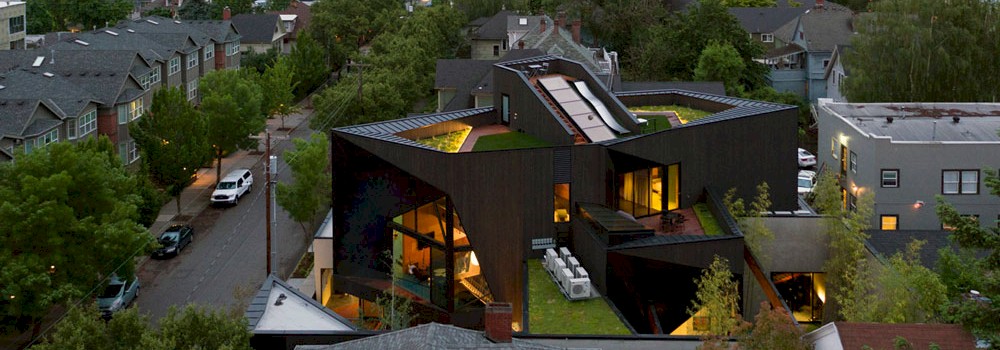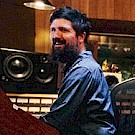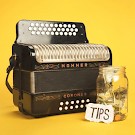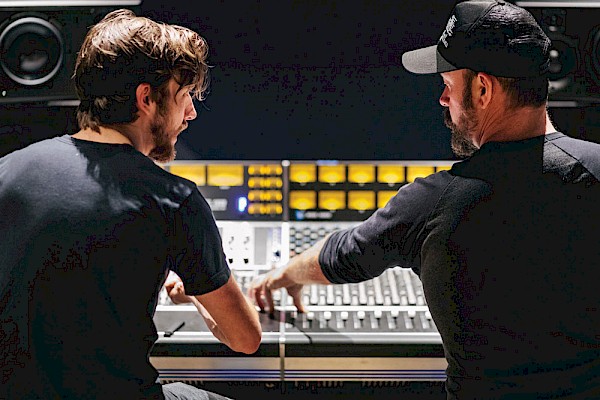 Engineer Adam Lee and The Decemberists' Chris Funk tracking Kyle Craft's 'Full Circle Nightmare' at Halfling Studio in October 2016: Photo by Jason Quigley"Are we open for business? Kind of.”
Engineer Adam Lee and The Decemberists' Chris Funk tracking Kyle Craft's 'Full Circle Nightmare' at Halfling Studio in October 2016: Photo by Jason Quigley"Are we open for business? Kind of.”
Chris Funk, known the world over as the all-purpose string wrangler from The Decemberists, is discussing Halfling Studios, a sideline opportunity that was too promising to pass up.
Make no mistake, The Decemberists is Funk’s number one gig and he’s currently touring in support of the group’s just-released eighth studio record, I’ll Be Your Girl.
The album, produced by John Congleton, was largely recorded at Halfling Studios, a modest pocket of rooms located inside a massive, futuristic events space (with two skate bowls) and creative compound in NW Portland owned by Nike executive Sandy Bodecker.
Through a complicated set of arrangements that includes pro bono work for a local nonprofit, Funk has set up shop as house producer and studio manager in a gorgeous, state-of-the-art facility that includes spacious living quarters for visiting musicians.
The entire ultra-modern structure—designed by architecture firm Skylab (Doug Fir Lounge, Knot Springs, Departure, Nike World Headquarters, among other posh spaces) and dubbed SINBIN—is three stories of pop art and vintage instruments on display (including a Fender bass that was used on a Howling Wolf album), a pair of well-appointed apartments, a photography suite, a beachy garden with fire pit, and putt-putt golf. Shinny up a ladder to enjoy the rooftop’s view and fun slide, the building is a breathtaking, interactive amusement park with endless nooks for conducting business, brainstorming or lollygagging—11,000 square feet of pure inspiration.
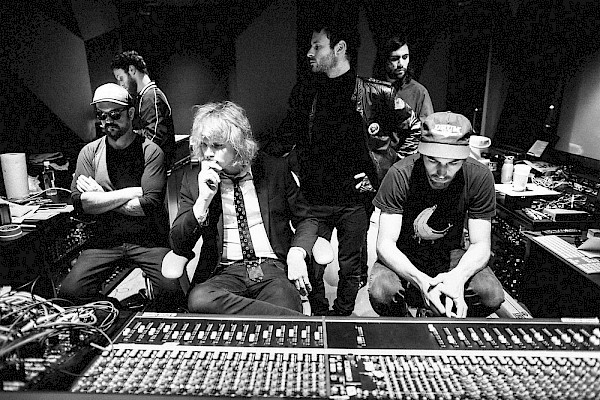 Chris Funk (left) and Kyle Craft (second from left) at Halfling Studio in October 2016: Photo by Jason QuigleyHell, you’d have to be in a coma not to feel creative in this house.
Chris Funk (left) and Kyle Craft (second from left) at Halfling Studio in October 2016: Photo by Jason QuigleyHell, you’d have to be in a coma not to feel creative in this house.
“Sandy built it with the intention of it being an artistic give-back to the community,” Funk says. “And what that is, still remains to be seen. I admire him greatly for building this joint without fully knowing what it is.”
Thus far, Funk and engineer Adam Lee have invited Kyle Craft, Y La Bamba, Sallie Ford, and Langhorne Slim, among others, to roll some tape at Halfling.
“We don’t have a website up or a calendar at present,” Funk confesses, but he goes on to describe an impressive and spendy arsenal of recording gear, both cutting edge and timeless. He notes Nashville studio wizard Michael Cronin oversaw the design of Halfling.
“The ambition of this studio was to spare no expense,” Funk says. “So digital or analog—whichever is more fun.”
There is a lilt of delight in Funk’s manner as he talks about working with other artists, including a quartet of Afghan musicians who just laid down suitably trippy sounds for a “quickie psych-folk” record from Pavement frontman Stephen Malkmus.
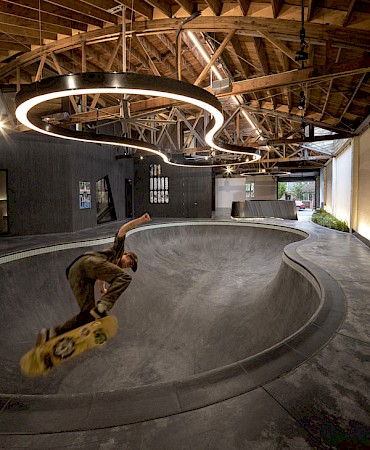 Photo by Jeremy BittermannSitting amidst the expensive toys and mint-condition gear, one gets the idea that fun is never too far away. In fact, it helped close the recording deal with Malkmus. “He liked the space and his kids dug the skate bowls,” Funk recalls. “I think that was part of it.”
Photo by Jeremy BittermannSitting amidst the expensive toys and mint-condition gear, one gets the idea that fun is never too far away. In fact, it helped close the recording deal with Malkmus. “He liked the space and his kids dug the skate bowls,” Funk recalls. “I think that was part of it.”
As a producer, Funk says he’s learned from his own experiences observing craftsmen like Tucker Martine and ex-Death Cab for Cutie guitarist Chris Walla direct recording sessions.
“You learn from the people you’ve worked with [who are] on the other side of the glass,” he says. “You hear their stories about different approaches, and watch their mannerisms and demeanor—how they successfully get takes out of people.”
“It’s all about personalities,” he concludes. “And how far they’re willing to go with your vision versus theirs.”
Funk pauses a moment.
“Inevitably, with every record, I end up feeling hurt,” he laughs. “That’s a good thing, because it means I’m invested in the record and that the artist has a really strong vision.”

